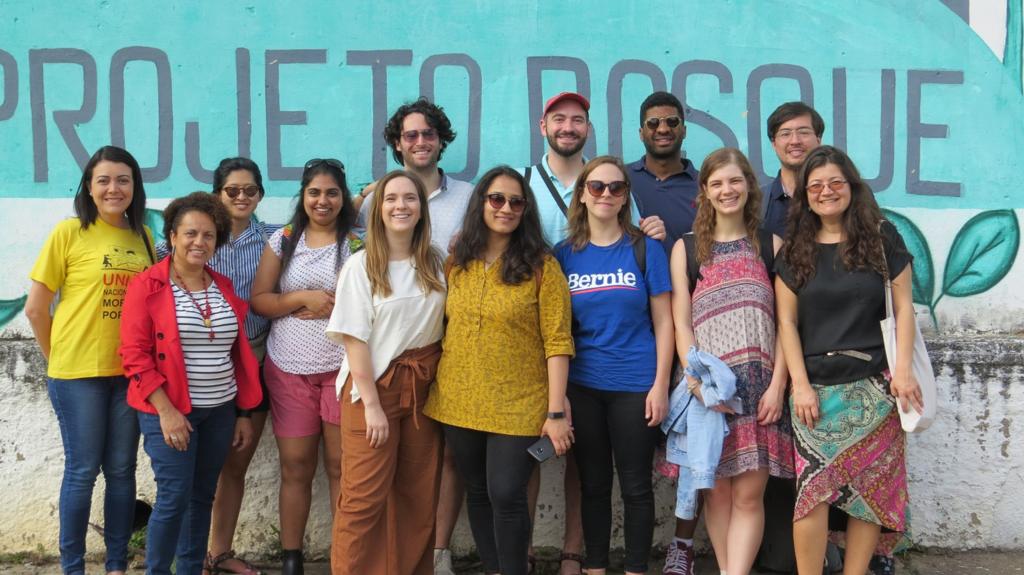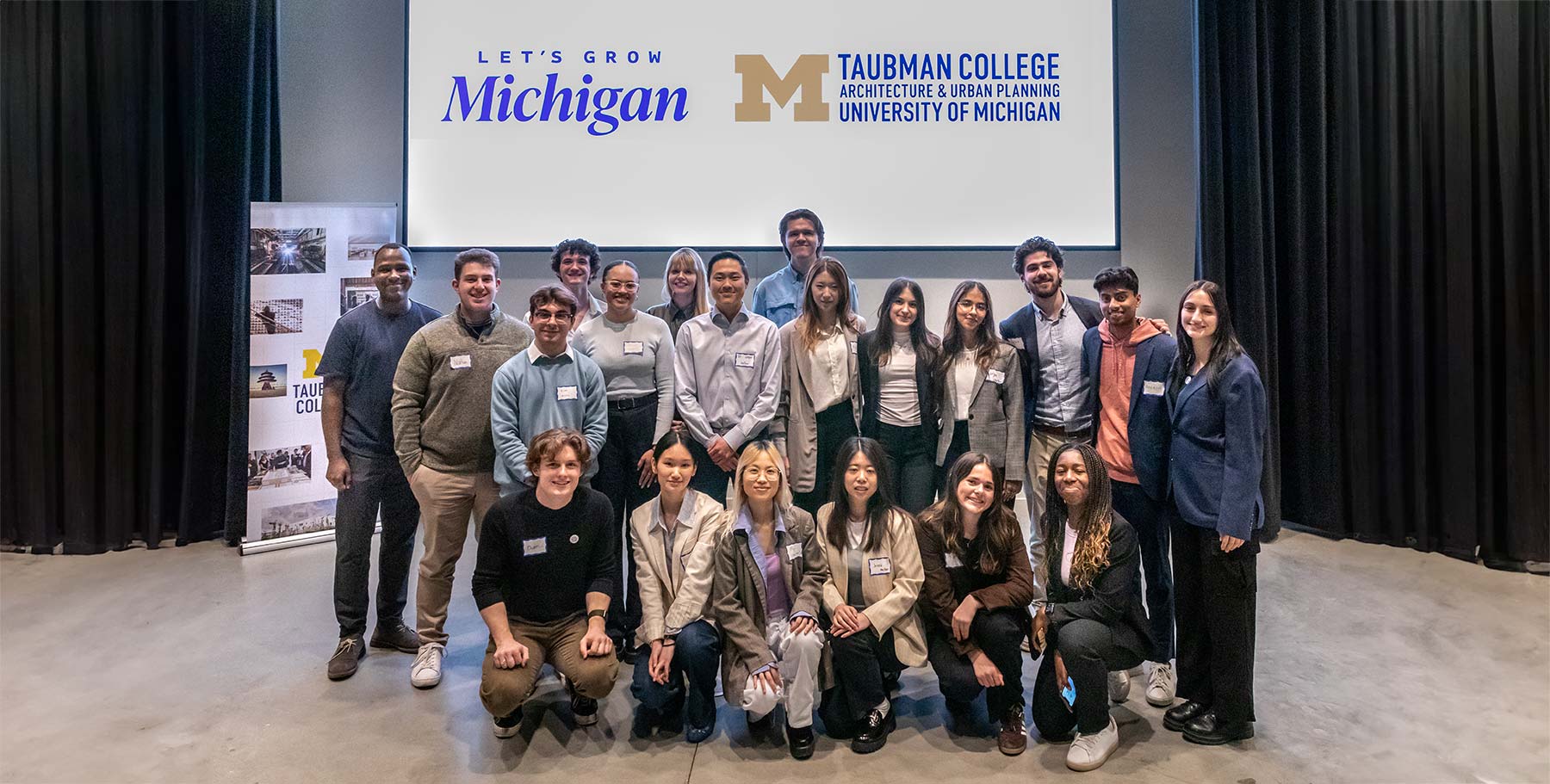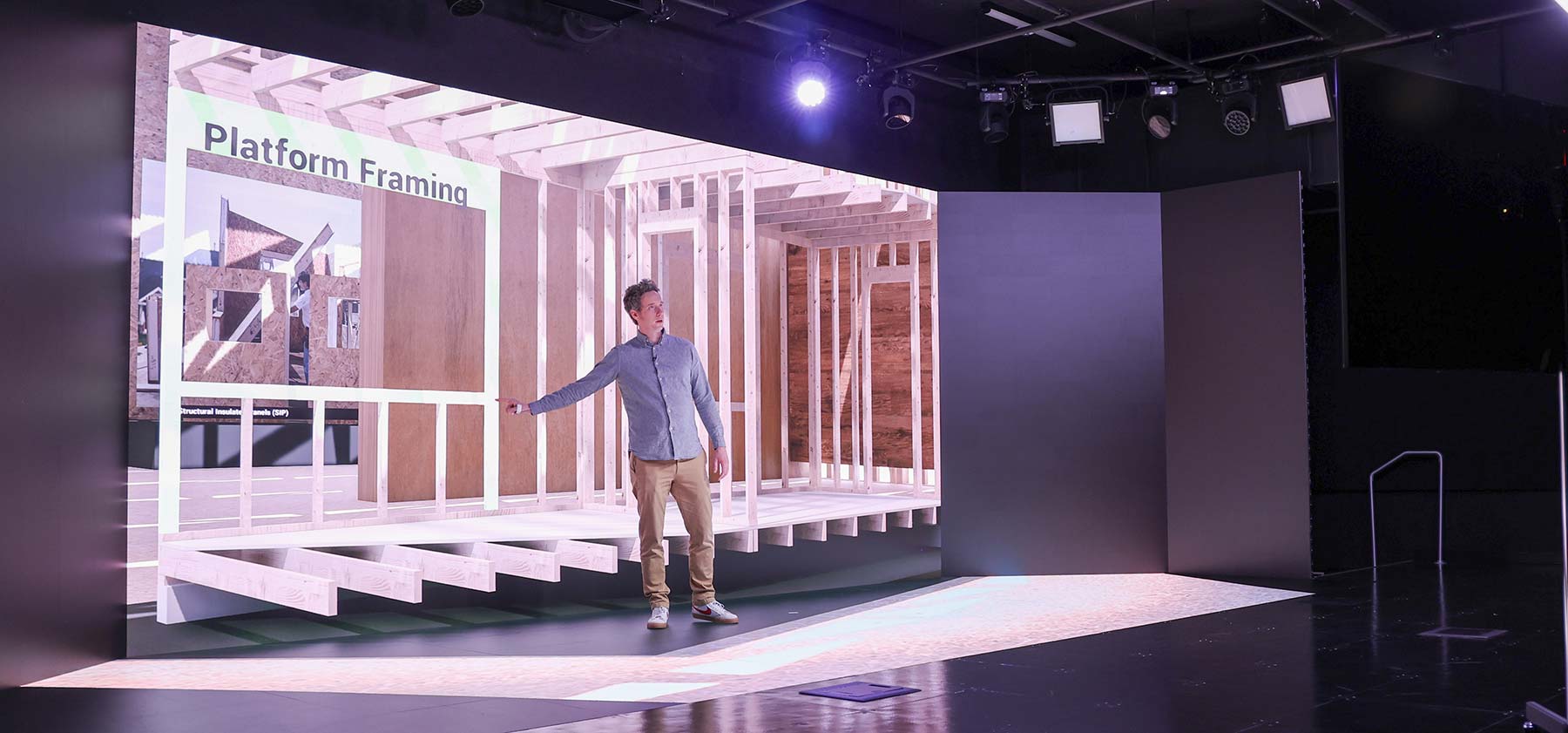A team of Taubman College urban and regional planning students won the 2021 Student Project Award from the American Planning Association for their 2020 capstone project, “Self-Management Law, Now! Fostering Community-Owned, Permanently Affordable and Sustainable Housing in Brazil.”
This national prize recognizes outstanding class projects by a student or group of students in a Planning Accreditation Board–accredited planning program that contributes to advances in the field of planning.
“The team showed incredible endurance and commitment to the project, and it’s a joy to see that their work is recognized as the best of all,” said Joe Grengs, urban and regional planning program chair and associate professor.
Through “Self-Management Law, Now! Fostering Community-Owned, Permanently Affordable and Sustainable Housing in Brazil,” students helped to develop a national educational and advocacy campaign for a draft bill that outlines a new legal framework for autogestão (self-managed) housing in Brazil.
In response to an inaccessible formal housing market, members of Brazilian social movements have proposed autogestão housing, which is democratically produced and governed through practices of mutual aid. Despite the success of autogestão housing, shifting public administrations often translates to unstable funding streams and support. Thus, the bill outlines a new legal framework for autogestão housing that aims to establish permanent programmatic support and funding at the federal level.
The Taubman College team advanced this agenda by strengthening the collective property section of the bill; researching and developing a toolkit of advocacy materials, including a documentary, mapping platform, case studies, and educational flyers, all hosted online; and producing Autogestão, Já! (Self-Managed Housing, Now!), a 15-minute documentary showcasing the potential of autogestão to benefit millions of low-income Brazilians.
The team conducted fieldwork in the São Paulo Metropolitan Region in March 2020 in which they visited housing sites, met with residents and leaders of the movements, conducted a participatory workshop, interviewed experts, and documented the autogestão housing development process. They also assisted their clients’ efforts to promote environmental stewardship in existing housing developments subjected to strict environmental regulations.
“The team demonstrated excellence with their project, Self-Management Law, Now!,” wrote one of the judges. “The selected methodology and final deliverables demonstrate a skillful refinement in the techniques and procedures. The transferability of this project goes beyond Brazil and is already in the works. The quality of the thought, analysis, writing, graphics, and deliverables is of a professional level. As the supplemental materials stated, the deliverables serve as an effective implementation technique. This project has an opportunity to have positive and significant effects in Brazil.”
Another judge said, “The students went above and beyond the typical planning process here, using their knowledge and skills to support a crucial movement in Brazil. Their efforts represent the significant impact that the planning profession can have on improving lives.”
The team (pictured during their fieldwork in Brazil) consisted of Alex Abramowitz, David Baker, Joshua Childs, Meagan Gibeson, Jacob Hite, Kimberly Higgins, Neetu Nair, Mrithula Shantha Thirumalai Anandanpillai, Rebecca Yae, and Jessica Yelk. The faculty adviser was Ana Paula Pimentel Walker, assistant professor of urban and regional planning. Joshua Childs, M.U.R.P./M.P.P. ’20, said the enduring relationship within his team and between the team and their partners in Brazil is one of the greatest benefits of the experience: “I am so grateful for my teammates, our Movement partners, and our fearless leader, Professor Ana Paula Pimentel Walker. Learning about self-managed housing in Brazil firsthand from Movement members is something I’ll always cherish. That our team continues to engage with the Movement to refine our website, expand our collaborative research, and apply for capacity-building grants makes this experience all the more worthwhile.”
The team also appreciated the boots-on-the-ground opportunity to explore the complexities of housing issues on a global scale.
“My experience during this capstone demonstrated the importance of government legislation in producing housing for low-income households. The low-income households that participate in the UMM-SP showed that they are willing to take responsibility for all aspects of development — fundraising, construction management, and procurement — in order to secure decent, stable, and affordable housing options; the limit of their success depends heavily upon enabling legislation from federal and state partners. In short, the limit of affordable housing production is not the capacity of low-income households but is instead the creation and administration of federal and state housing programs,” said David Baker, M.U.R.P. ’20.
Additionally, noted Rebecca Yae, M.U.R.P. ’20, “Working on this project showed me how social movements and on-the-ground organizing can (and should!) drive good housing policy that embodies the values of and responds to the needs of the people it serves.”
In 2018, another Taubman College capstone project, “Stabilizing Morningside,” earned national recognition by winning the AICP (American Institute of Certified Planners) Student Project Award in the “Contribution of Planning to Contemporary Issues” category. It focused on the housing conditions in the Morningside neighborhood of east-side Detroit. More about the “Stabilized Morningside” project, including the full report and video, can be found here.
For the 2021 award winners, the experience was an exciting, memorable way to conclude their time at Taubman College, and the award is gratifying recognition of what they accomplished.
“This capstone project was truly the highlight of my time at Taubman,” said Neetu Nair, M.U.R.P. ’20. “Not only were we learning about international housing policy and self-management, an incredible framework for permanently affordable housing, we were also co-creating a product for the movement that would live on beyond our project and continue to support their critical work. Our lasting partnership with UMM continues to inspire us to fight for housing justice, and as a team we are grateful to call them our allies. I frequently draw on the lessons, skills, and drive I gained from this project in my professional career.”
Learn more about the 2021 American Planning Association Student Project Award.





